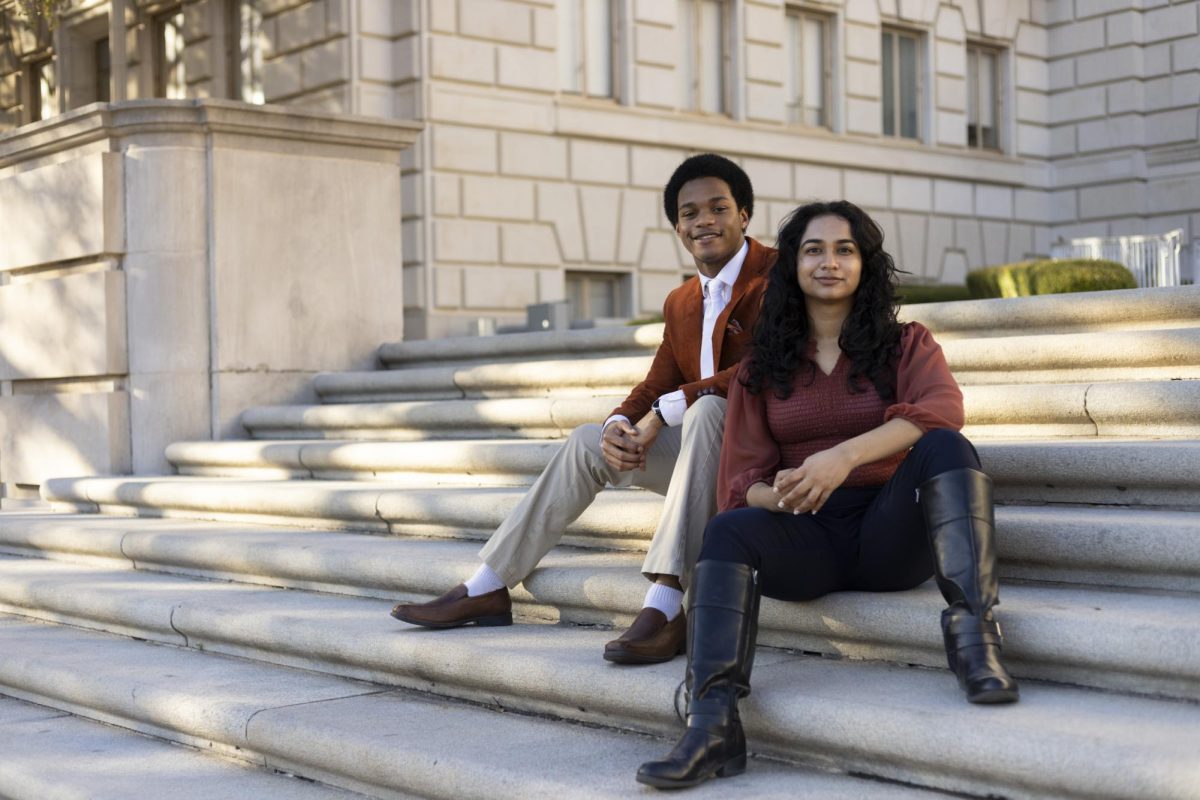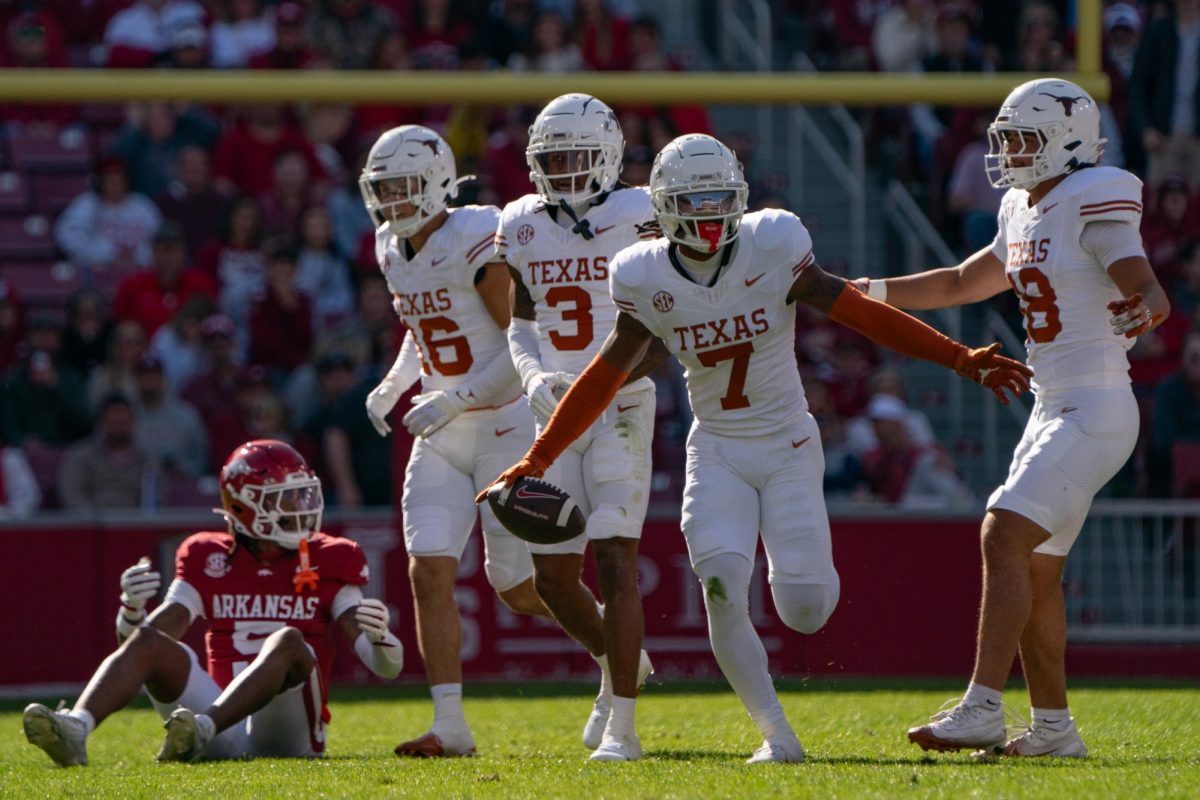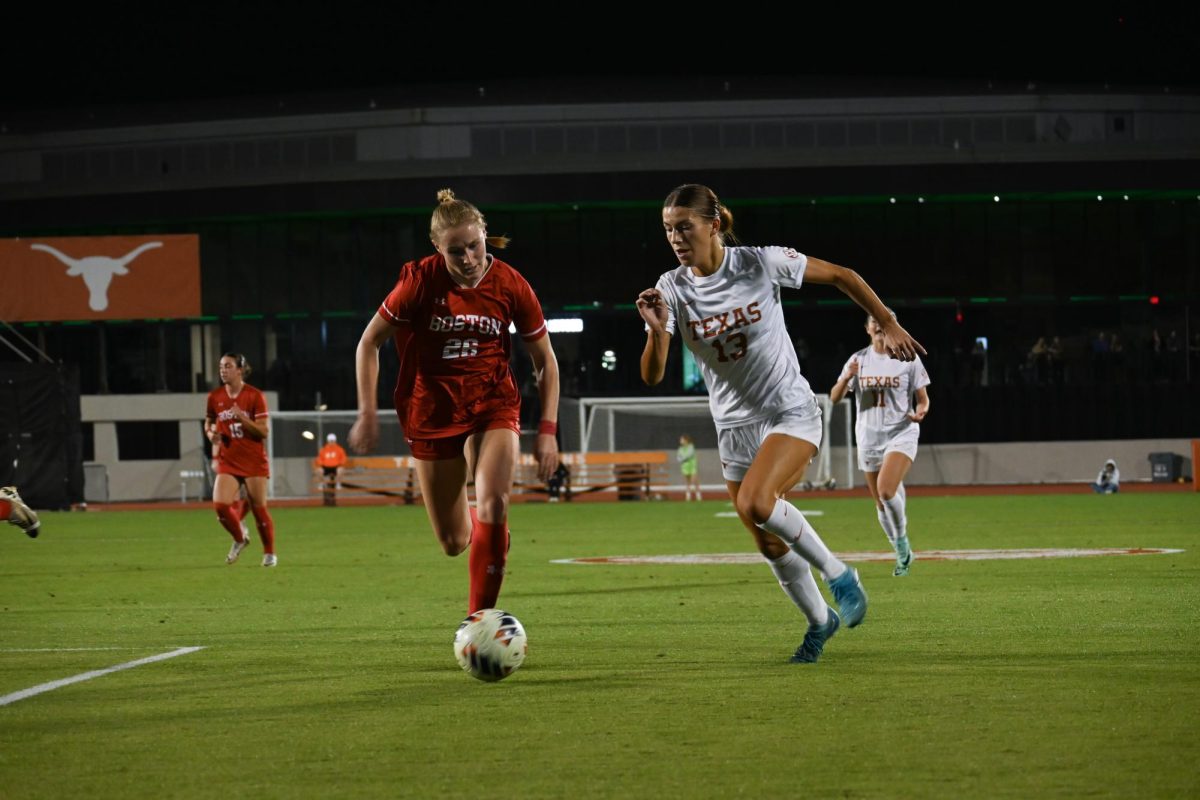Editor’s note: This endorsement reflects the opinion of the Daily Texan Editorial Board and not necessarily the opinions of The Daily Texan staff as a whole.
Improbability, questionable feasibility and in some cases, downright lack for accuracy, have plagued this student government election season on the Forty Acres. Campaigns have attempted to some degree to garner support, but have largely found themselves unable to resonate with the student body in a memorable way.
Despite this, the Texan editorial board has launched into its annual endorsement process, studying candidate policy points, interviewing alliances and moderating a debate that left many feeling underwhelmed. This election season, no presidential candidate on the debate stage has any Student Government experience under their belt, and only one vice-presidential candidate has ever held office. For such a complex organization, this leaves many wondering how prepared the alliances are to lead the student body.
In all honesty, every alliance this year fell short in some major aspect of their platform. While there’s typically one standout alliance, we struggled to pinpoint how any would actually execute all their campaign promises.
Nevertheless, the Texan editorial board has a responsibility to endorse the alliance who we believe could realistically enact the most meaningful change on campus. We assessed the three alliances who chose to participate in our endorsement process and debate using three main metrics.
Candidates first submitted their platform policy points and materials alongside responses to an alliance questionnaire. We utilized this information to ask specific questions regarding the practicality of their goals in an hour-long interview, focusing on any budgetary or legal constraints they may face. Lastly, we considered the remarks from each alliance during the SG debate.
This year, four executive alliances campaigned: Grace Kelly with Elle Grinnell, Ramya Nambala with Jonathan Wilson, Austin Barthel with Andrew McKiernan, and Jonathan Griffith with Lemuel Sarfo. Of the four alliances, Jonathan Griffith and Lemuel Sarfo chose neither to participate in the Texan’s editorial board endorsement process nor the Student Government debate.
After taking each alliance and their performance into consideration, we believe the best choice for the next Student Government president and vice-president are Ramya Nambala and Jonathan Wilson. While no alliance was impressive, the Nambala-Wilson alliance presented the most attainable solutions with the healthiest balance between what they wanted to achieve and what could feasibly be accomplished within Student Government’s authority and their time in office.
Grace Kelly and Elle Grinnell
The Kelly-Grinnell alliance was seemingly the most well-intentioned of the race. We believe they will make a positive impact on campus, but in a different capacity. Their platform points were overly ambitious and largely unattainable, lacking consideration for budget constraints and their time in office. Although great in theory, their proposal for university subsidized long-term counseling does not seem feasible. Funding long-term counseling for a student body of over 50,000 is far beyond the current capabilities of any administration’s budget. When addressing funding concerns, they were unable to provide a response beyond “the necessary funding for these measures will be conscientiously allocated from (their) budget.” However, we do acknowledge that their mental health modules proposal is a feasible and impactful initiative.
In addition, a point under their cultivating equality policy was the improvement of space reservation for student groups on campus. Currently, this is a university-operated process not under SG’s jurisdiction. Though a small example, this exhibits a potential roadblock for the Kelly-Grinnell campaign — their lack of SG experience. Neither Kelly nor Grinnell has ever been a part of SG, and while they each have a variety of other leadership experience under their belt, experience in a legislative organization is largely beneficial to understanding the limitations an alliance faces.
Despite their lack of experience, they did understand the need for accessibility, and proposed forums for conversations with the student body. Kelly and Grinnell are extremely passionate individuals – they clearly care about this campus and the legacy they leave on it, and we truly believe they have student’s interests at heart. That being said, the alliance seems to lack a clear understanding of their budgetary restrictions or of what can reasonably be accomplished within one administration.
Austin Barthel and Andrew McKiernan
While the Barthel-McKiernan campaign was riddled with points of concern, the alliance does seem to be acting in what they believe to be the best interest of the student body. Though well-meaning in their desire for a majority of the SG budget to go toward scholarships, their understanding of SG operations and the budget’s purpose was lackluster at best. Their determination of where to cut funds seemed arbitrary, and when pressed for specifics, they could not describe their motivations. For example, they placed a maximum of $3,000 for all agencies in SG, a seemingly random change that drastically cut the budget for multiple agencies. Despite specific changes to the budget, Barthel and McKiernan had little explanation for their choices beyond their experience at the state capitol.
Their goal is to fund around $87,000 in scholarships, but by doing this, they would take money from agencies and programs that already benefit the entire student body. They argue that the revised budgets afforded to agencies in their plans are enough to continue their missions, but that claim is unsubstantiated without an understanding of the agencies operations or needs. Their campaign’s main selling point was an increase in transparency, but there was zero transparency about where the alliance’s financial decisions originated.
Finally, it seems there was a misunderstanding around the complete budget, and they were operating on a fraction of SG’s funds. As a result, the numbers they campaigned with were largely inaccurate, and their assessment of basic facts, like the total budget percentage of stipends, do not reflect SG’s current allocation of funds.
To be fair, the alliance’s difficulty attaining a complete budget and the misunderstanding that ensued validates their argument in favor of transparency, and we do believe their goal of a more publicly accessible budget would be highly beneficial to the student body. The majority of their platform points were overshadowed by their desire for budgetary reductions, and in the end, even those were proven to be incorrect.
Our endorsement: Ramya Nambala and Jonathan Wilson
The Nambala-Wilson alliance was the only one in the race with any Student Government experience, and it was reflected through the feasibility of some of their plans. Their focus on policies requiring little to no funding helped push many of their initiatives towards plausibility, in stark contrast to the other alliances. Wilson’s experience in student government and his recent involvement in legislation addressing meal plans for off-campus students helped to push their food insecurity policies in a positive direction, and shows the benefit of an alliance with knowledge of the internal processes of SG. Another key responsibility of an executive alliance is advocating to external groups, something they’ve done by reaching out to the Texas Exes for help with student DEI initiatives.
However, their central plan for campus communication included following the entirety of the student body on Instagram — needless to say, that’s beyond improbable, but it poses a relatively smaller issue. They did have backups for that communication plan, and would hold forums for students to voice concerns. Additionally, their transition from the Multicultural Engagement Center to a Student Engagement Center was too vague. Even then, the current administration already approved a similar referendum which students will vote for on election day.
The alliance’s effort to distribute unused meal swipes at the end of the year wasn’t reviewed by University Housing and Dining before running on the platform point, so we’re unsure of its feasibility, but we do believe that Wilson has the skills to work with university administrators based on his experience. The alliance’s agency-specific plans also show their understanding of the internal workings of student government, something that we feel the other two alliances lacked.
Finally, the Nambala-Wilson alliance had a strong presence at the debate, and Nambala’s closing statement thoroughly articulated the main goals of their campaign. Her ability to clearly deliver her points proves she is capable of serving as a liaison between the student body and university administration — a central role of the presidency. The Nambala-Wilson alliance didn’t have standout policy points, but they did keep their goals in reach, which is key for when they enter office.
Ultimately, it is our opinion that Nambala and Wilson are this election’s best bet at creating a positive impact on the student body. Though we disagree with the other two alliances’ ability to enact many of their goals, we appreciate their aspirations for a better campus community.
We hope you’ll join us in voting for Ramya and Jonathan when voting opens at 8 a.m. on Monday, Feb. 26 and closes at 5 p.m. on Tuesday, Feb. 27 at utexasvote.org.
This editorial was written by associate editors Justin Doud, Tanya Narwekar and editor-in-chief Lucero Ponce.



















